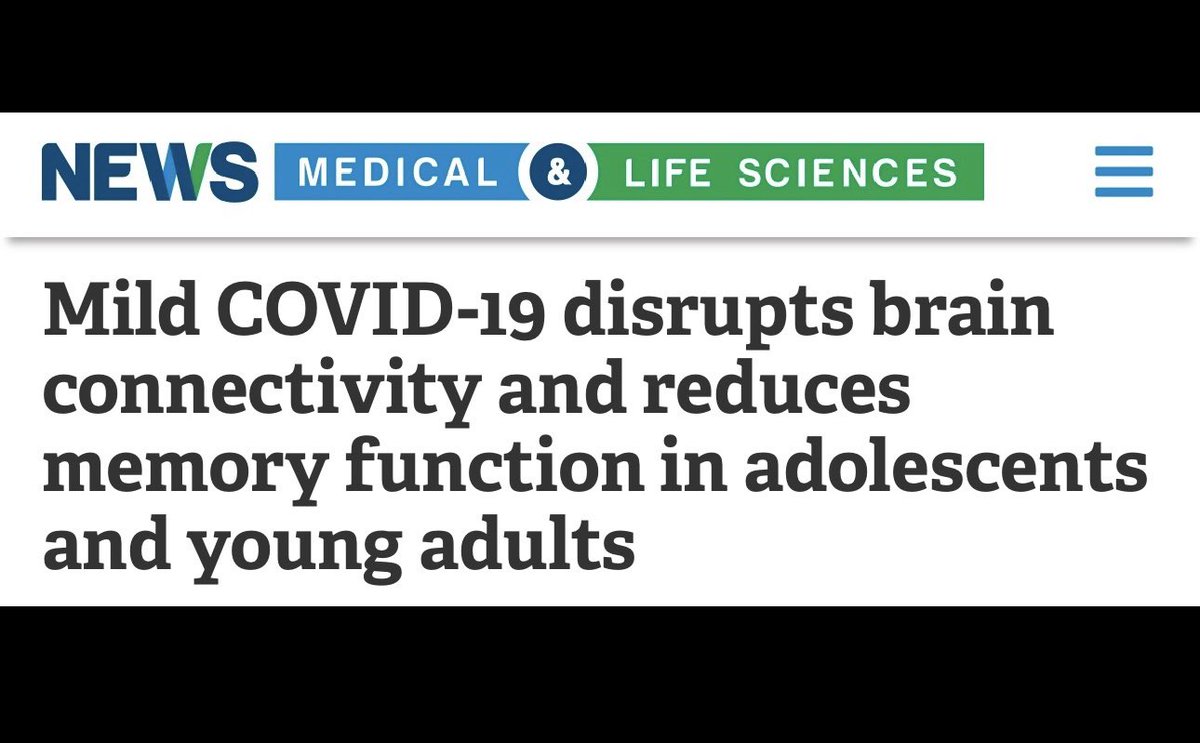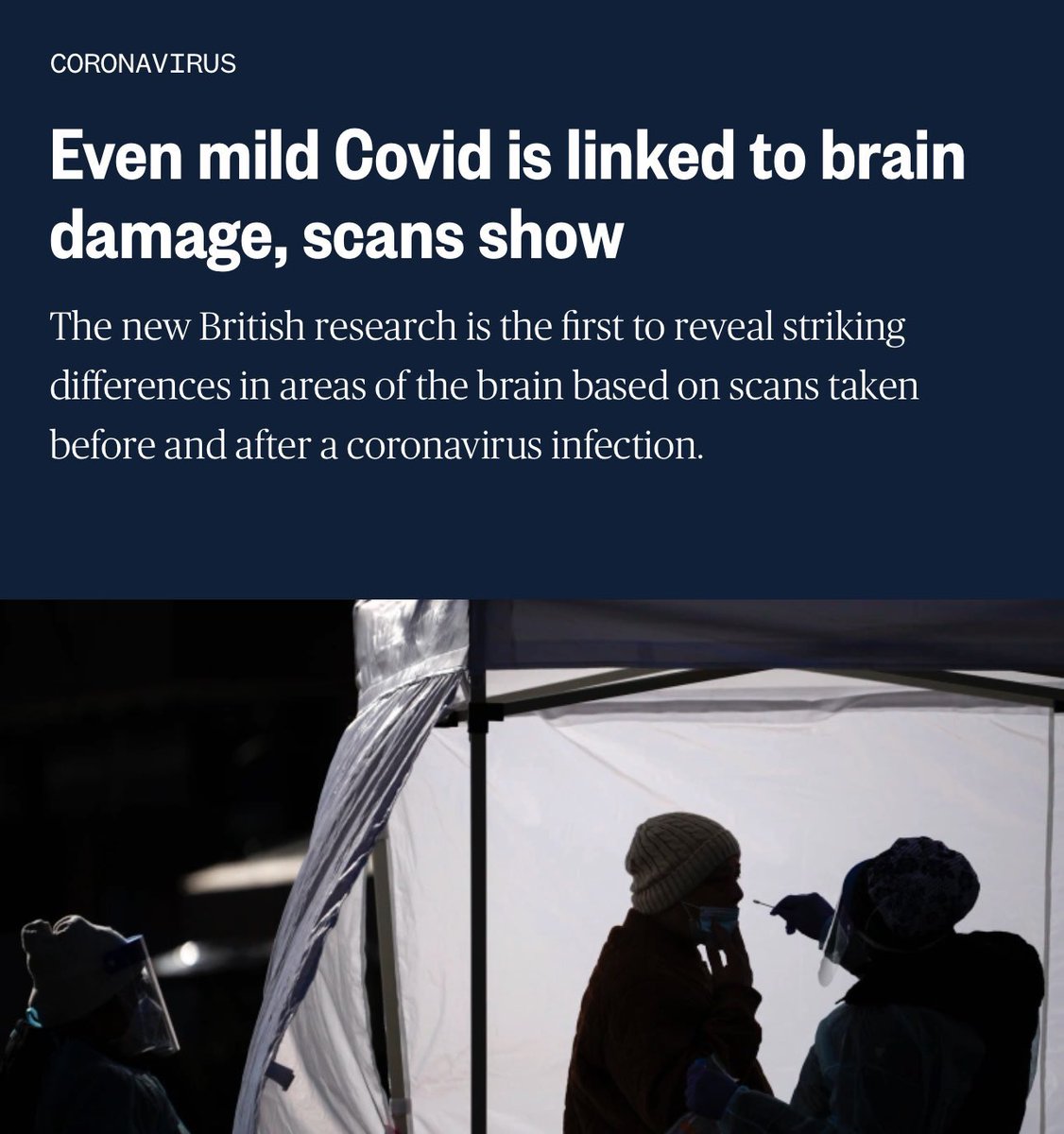Surging aggression. Language delays. Dysregulation. Developmental issues. Teachers & parents are seeing major changes in children.
Lockdowns are often blamed. But UK lockdowns were short. So what else changed in early childhood since 2020?
Let’s talk about COVID. And brains. 🧵



Lockdowns are often blamed. But UK lockdowns were short. So what else changed in early childhood since 2020?
Let’s talk about COVID. And brains. 🧵




Let’s be clear: lockdowns may have had an impact on some children, especially in unsafe homes or w/poor digital access. That shouldn’t be denied.
But what we’re seeing now goes far beyond what short-term isolation would explain, especially in children born after lockdowns ended.
But what we’re seeing now goes far beyond what short-term isolation would explain, especially in children born after lockdowns ended.
Babies aren’t socialised in their first 2–3 months to protect their fragile immune systems. Instead, they focus on bonding with caregivers.
So blaming lockdowns for behavioral issues in babies born during or after 2020 ignores the major factor: widespread infections in infancy.
So blaming lockdowns for behavioral issues in babies born during or after 2020 ignores the major factor: widespread infections in infancy.

Since 2020, UK children (incl infants) have been repeatedly infected with SARS-CoV-2:
- A virus that enters the brain
- Damages grey & white matter
- Shrinks the frontal cortex
- Alters neurological development
Even after mild or asymptomatic infections.
- A virus that enters the brain
- Damages grey & white matter
- Shrinks the frontal cortex
- Alters neurological development
Even after mild or asymptomatic infections.
The frontal lobe governs:
- Impulse control
- Language acquisition
- Emotional regulation
- Social behaviour
- Attention & learning
- Empathy
Subtle damage during development can profoundly affect behaviour and cognition.
- Impulse control
- Language acquisition
- Emotional regulation
- Social behaviour
- Attention & learning
- Empathy
Subtle damage during development can profoundly affect behaviour and cognition.
Teachers are reporting:
- More violence, even in reception and KS1
- Children hitting staff & peers
- Difficulty with attention & following instructions
- Emotional volatility
- Delays in speech, literacy, writing, and social development
This is systemic. And new.
- More violence, even in reception and KS1
- Children hitting staff & peers
- Difficulty with attention & following instructions
- Emotional volatility
- Delays in speech, literacy, writing, and social development
This is systemic. And new.
UK lockdowns were short-lived:
- Nurseries & early years reopened June 2020
- All year groups returned to school in September 2020
- Under-5s faced few social restrictions
Yet the youngest cohorts, many born after lockdowns, are showing the most concerning outcomes.
Why?
- Nurseries & early years reopened June 2020
- All year groups returned to school in September 2020
- Under-5s faced few social restrictions
Yet the youngest cohorts, many born after lockdowns, are showing the most concerning outcomes.
Why?

Here’s what changed… mass infection became policy:
- No clean air in schools
- No real protections for staff or students
- No vaccines for under-5s
- Reinfections normalised, even encouraged to achieve “herd immunity”
COVID became routine for children.
That has consequences.
- No clean air in schools
- No real protections for staff or students
- No vaccines for under-5s
- Reinfections normalised, even encouraged to achieve “herd immunity”
COVID became routine for children.
That has consequences.
COVID is not just a respiratory virus.
It’s neuroinvasive. It can:
- Cross the blood-brain barrier
- Persist in neural tissue
- Trigger brain inflammation
- Shrink the frontal cortex
- Affect white matter, connectivity, cognition
Even in mild/asymptomatic illness.
It’s neuroinvasive. It can:
- Cross the blood-brain barrier
- Persist in neural tissue
- Trigger brain inflammation
- Shrink the frontal cortex
- Affect white matter, connectivity, cognition
Even in mild/asymptomatic illness.
Even children born after lockdowns ended, who missed the brunt of restrictions, are showing worrying developmental trends:
- Delayed speech
- Poor attention span
- Trouble with emotional regulation
- Language & learning gaps
Kids will have had 3–6 covid infections before age 6.
- Delayed speech
- Poor attention span
- Trouble with emotional regulation
- Language & learning gaps
Kids will have had 3–6 covid infections before age 6.
Meanwhile, children who lived through the peak pandemic years are now in classrooms, and teachers are reporting:
- Violent outbursts
- Severe attention issues
- Struggles with empathy, self-control, and literacy
This points to something deeper than just lockdowns.
- Violent outbursts
- Severe attention issues
- Struggles with empathy, self-control, and literacy
This points to something deeper than just lockdowns.
Multiple studies show COVID-19 affects developing brains:
🧠 Infants born to infected mothers show altered brain structure
🧠 Children post-covid show cognitive delays and inflammation
🧠 Even mild cases leave long-term neurological footprints
🧠 Risk grows with each reinfection
🧠 Infants born to infected mothers show altered brain structure
🧠 Children post-covid show cognitive delays and inflammation
🧠 Even mild cases leave long-term neurological footprints
🧠 Risk grows with each reinfection
In short:
UK children are being repeatedly infected, often within their most vulnerable developmental windows, by a virus that damages the brain.
We are normalising this. Ignoring it. Blaming everything but the virus itself.
That is a societal failure of staggering proportions
UK children are being repeatedly infected, often within their most vulnerable developmental windows, by a virus that damages the brain.
We are normalising this. Ignoring it. Blaming everything but the virus itself.
That is a societal failure of staggering proportions
This thread isn’t about fear, it’s about recognition
Lockdowns had an impact, yes, but something else is driving this
We owe it to children to ask the hard questions. To protect them from repeat brain injury that may alter their development, and their futures, permanently
END



Lockdowns had an impact, yes, but something else is driving this
We owe it to children to ask the hard questions. To protect them from repeat brain injury that may alter their development, and their futures, permanently
END




• • •
Missing some Tweet in this thread? You can try to
force a refresh



















